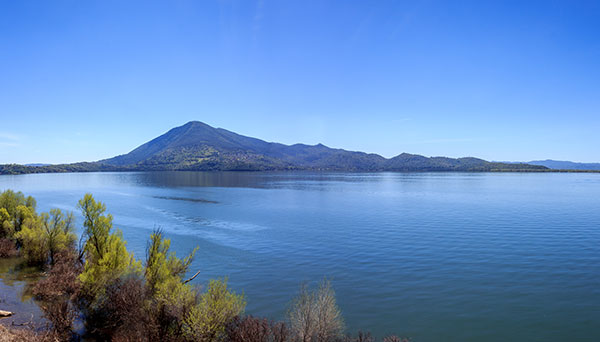Collaborative Community Research and Action to Build Climate Change Resiliency on California’s Largest Lake
Organization: Big Valley Band of Pomo Indians
Location: Lake County, California.
Communities directly affected by the project: Clear Lake (Lake County, California) and the surrounding Clear Lake Watershed, on the traditional territories of the Pomo, Lake Miwok peoples.
Country: United States
Other Organizations Involved: Tribal Eco-Restoration Alliance
 @ Michael Overstreet
@ Michael Overstreet
Background
Since 2015, catastrophic wildfires have burned >60% of Lake County. Epic drought has lowered lake, slough, and marshland water levels and amplified toxic chemical concentrations in aquatic biota. Rising water temperatures have resulted in alarming recurrences of harmful algal/cyanobacteria blooms (HABs), endangering native wildlife and the health of tribal members and lake-based cultural sites.
Historically disadvantaged communities in Lake County, including several dozen regional Pomo Tribes and Tribal communities, fish in Clear Lake and its tributaries, gather aquatic reeds (tule, bulrush, sedge) for regalia, basketry, medicine, and food, and conduct rituals and ceremonies within aquatic habitats. HABs and other climate change-induced deteriorating water quality issues—especially cyanotoxins [microcystins and anatoxins at levels 32,000 times above environmental standards], pesticides, and fire-retardants—directly impact Tribal Beneficial Uses (TBUs) and the drinking water supplies for 65% of Lake County’s residents.
Goals
Our collaborative, community-based project combines traditional ecological knowledge (TEK) and data-driven monitoring to enact nature-based restoration solutions for climate change-amplified ecological imbalances in and around Clear Lake.
Main activities
The project will:
- Employ TEK and tribal youth to ground-truth aerial maps and restore shoreline tule habitats through replanting of propagated tule seeds and plugs;
- Support tribal staff in water quality monitoring, fish/tule tissue sampling, and community outreach;
- Expand tribal and local community capacity through online environmental education and agency partnership for co-management of culturally significant aquatic species and their associated habitats;
- provide substantive and influential policy-making contributions to local, tribal, state, regional, and federal databases and climate action/adaption/mitigation plans for Clear Lake and Tribal Beneficial Uses.
Outcomes
Our collaborative project objectives and outcomes contribute to developing climate resiliency from a different angle. All project activities are leveraged by a suite of related grants and closely integrated to support our larger, long-term vision of building capacity by embedding resiliency into cultural landscapes, human capital, and policy infrastructure.